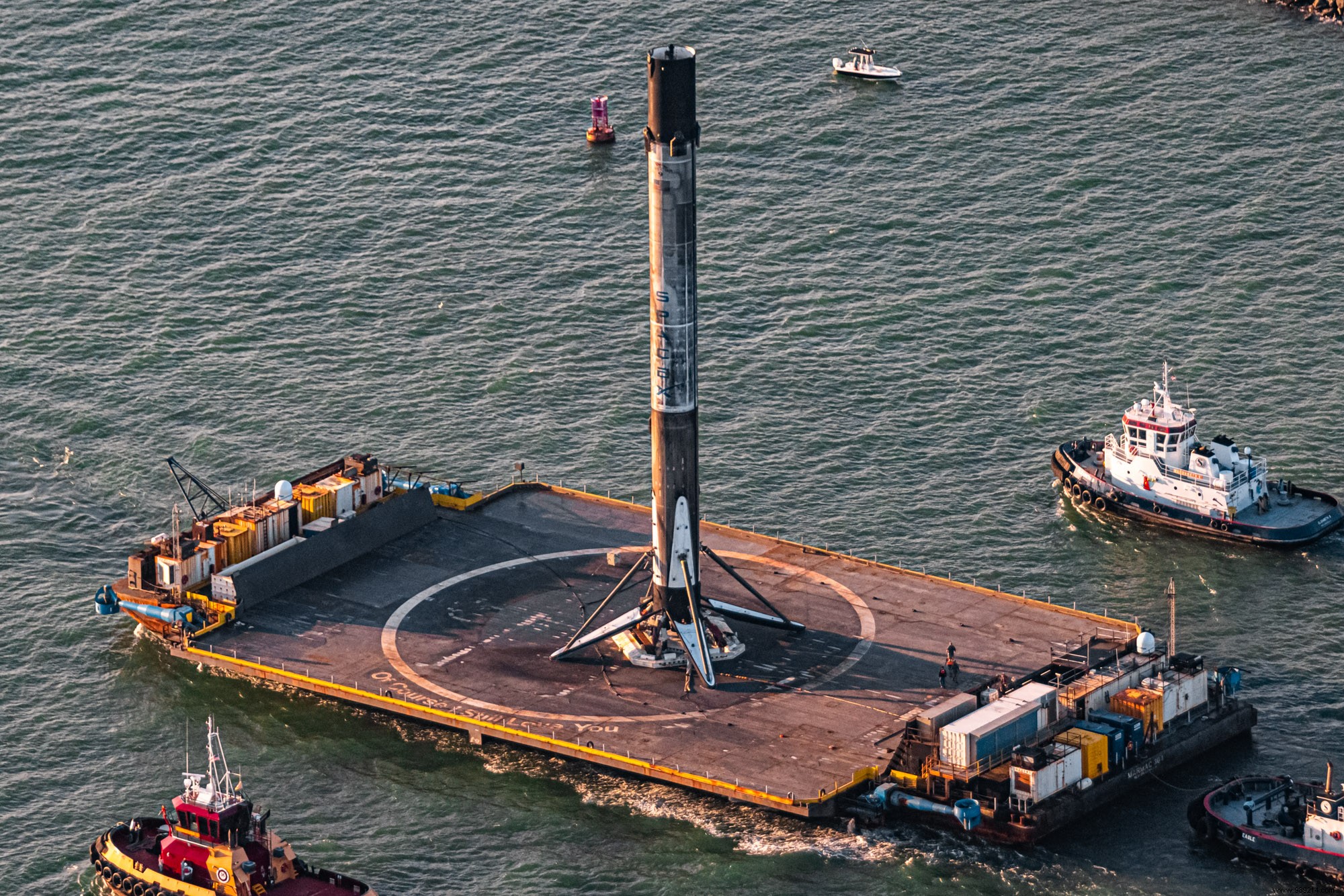SpaceX's engineers pulled off a game-changing feat in 2016: landing a Falcon 9 booster on a drone ship at sea. This breakthrough gave the company a massive edge over rivals. Here's why it was pivotal.
Just over five years ago, on April 8, 2016, SpaceX achieved a historic milestone by landing a Falcon 9 booster on an ocean platform off Florida's coast (video at article's end). The 2015 land landing near the launch pad was groundbreaking, but this sea recovery was even tougher.
Technically, it was far more complex due to ocean swells and motion. Critically, without drone ship capability, SpaceX couldn't deliver its current launch services.
During ascent, the first stage tilts horizontal after separating the second stage toward orbit. Returning to the launch site demands massive fuel reserves. Instead, following a fuel-efficient parabolic trajectory to a downrange drone ship hundreds of kilometers away maximizes payload.
Performance figures confirm this: A Falcon 9 landing on a drone ship carries about 5.5 tons to geostationary transfer orbit, versus just 3.5 tons for a return-to-launch-site landing.

Without sea landings, SpaceX would sacrifice roughly 40% of its lift capacity, undermining the cost savings of rocket reuse.
That's why SpaceX has prioritized Atlantic drone ship recoveries for the past five years. Note: Nearly a decade ago, Blue Origin patented vertical sea landings; SpaceX successfully challenged it in court.
Since then, SpaceX has nailed nearly sixty water landings with Falcon 9 first stages. From early 2021, every launch has used battle-tested boosters (multiple flights), slashing mission costs dramatically.
Blue Origin, meanwhile, has yet to attempt an orbital rocket launch or recovery. Its recovery ship Jacklyn is retrofitted but unlikely operational before 2023 at earliest.